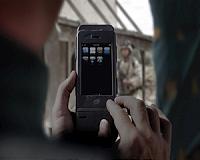 |
Tokyo (AFP) Sept 24, 2010 Japan will soon start trialling electronic textbooks in primary schools, enhancing the role of IT in the classroom for a generation of "digital natives" born in the wired age. Under the "future school" project, 10 elementary schools will give all their under-12 pupils tablet PCs and fit their classrooms with interactive electronic blackboards starting as early as next month. The networked devices boast software that lets them trace complex Chinese characters on-screen or exchange ideas on a virtual white sheet of paper in real time, while a teacher digitally monitors their work. Japan, despite its status as a high-tech pioneer, lags behind South Korea, Singapore, Britain and other countries in IT use in education, said an official with the communications ministry, which is running the pilot programme. Nurturing Japan's human resources is seen as crucial for the resource-poor island nation with a shrinking population, and a newly-adopted government growth strategy aims to give every student a computer by 2020. Publishers of textbooks, software and other educational materials showed off their latest cutting-edge goods for the wired classrooms of tomorrow at the industry fair the New Education Expo in Tokyo this week. Toshiba has developed a tablet PC designed for educational use called the CM1, together with US microprocessor giant Intel, which will be used in the "future school" project along with devices made by Fujitsu. One of the software programmes for it is "CollaboNote" by JR Shikoku Communication Ware, which allows pupils to share a virtual sheet of paper, to write, read and share information in real time. It can link students within the classroom but also in remote locations, allowing them to discuss and study a common subject. The programme can help shy students, said the company's Kazuaki Aonuma. "Some kids do not raise their hands in class and end up saying nothing," he said. "But they find it easier to express what they think by typing it." The company said it has already shipped 5,000 of its software packages to elementary and junior high schools for students aged under 15, charging about 750,000 yen (8,800 dollars) per school. Today's children are dubbed "digital natives" because they have been exposed to information technology since they were born, and they quickly embrace such new tools, said JR Shikoku Communication's Takayuki Furuno. "Kids are faster learners than their teachers," Furuno said. "They aren't afraid of making mistakes... They know any wrong input can be erased easily." Another digital textbook, to be released by Tokyo Shoseki early next year, offers videos of scenes difficult to observe in real life, such as a time-lapse film of an insect emerging from its cocoon. Japanese students have already used games consoles for quizzes in individual school programmes, but not as part of nationwide initiatives. Many teachers already use digital devices at the front of the classroom. Major textbook publisher Mitsumura Tosho said its teacher-use digital textbooks are already being used by 3,000 publicly funded elementary schools. They include software that gives animated, stroke-by-stroke instructions on how to write complex Chinese characters, and a programme that provides matching backgrounds as poems are recited. Textbook makers agree digital books should not replace conventional paper editions but instead serve as additional educational tools. "There is big doubt on whether digital tools will replace all paper-based materials. We adults also print documents if the information is important," said Masami Matsumura, a software marketing official of Mitsumura Tosho. "What has been effective should stay," he told AFP at the expo site. Students seemed to like the idea of digital textbooks. "Just listening to what teachers say is boring, it makes me sleepy," said 13-year-old Kumie Kodani. "Digital textbooks seem more fun. I hope they will be introduced in our class." The pilot scheme will start as early as October with a budget of one billion yen (8.5 million dollars) for the current fiscal year. The ministry plans to raise the number of participating schools to 50 next year and has requested a budget boost to 2.87 billion yen.
Share This Article With Planet Earth
Related Links Space Technology News - Applications and Research
 FCC frees up spectrum for super-fast wireless
FCC frees up spectrum for super-fast wirelessWashington (AFP) Sept 23, 2010 US government regulators freed up unused spectrum between television channels on Thursday for super-fast wireless service and use by the next generation of mobile devices. The Federal Communications Commission (FCC) voted 5-0 to open up so-called "white spaces" - the vacant airwaves between broadcast television channels. The FCC said the move, the first release of unlicensed spectrum in ... read more |
|
| The content herein, unless otherwise known to be public domain, are Copyright 1995-2010 - SpaceDaily. AFP and UPI Wire Stories are copyright Agence France-Presse and United Press International. ESA Portal Reports are copyright European Space Agency. All NASA sourced material is public domain. Additional copyrights may apply in whole or part to other bona fide parties. Advertising does not imply endorsement,agreement or approval of any opinions, statements or information provided by SpaceDaily on any Web page published or hosted by SpaceDaily. Privacy Statement |